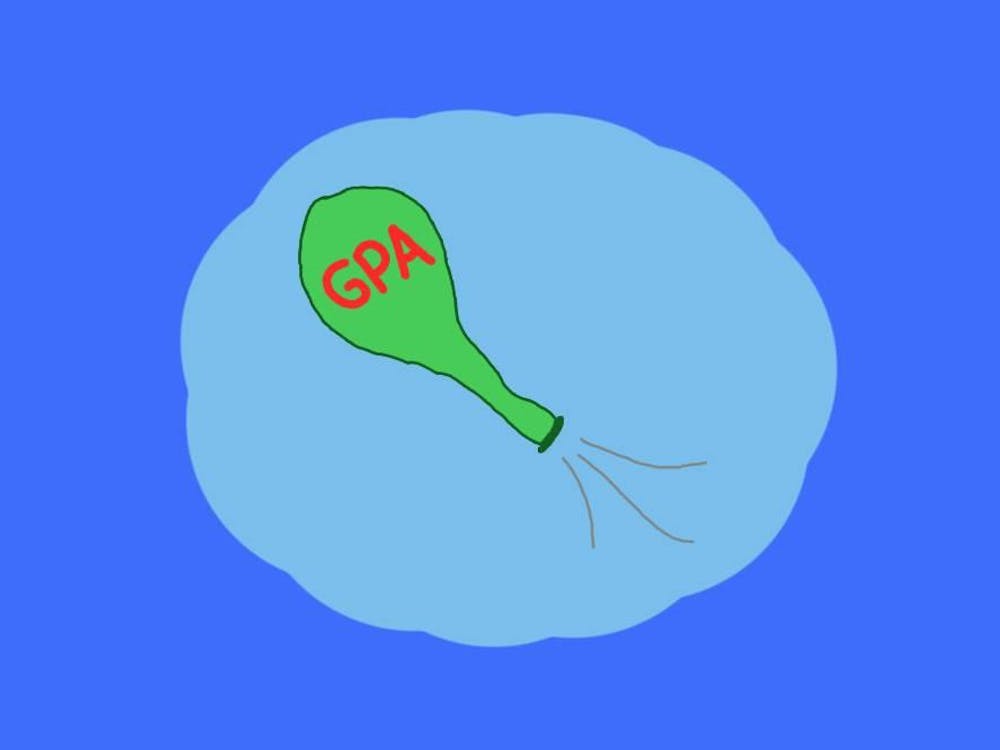CLICK. CLICK ... Click ... Click click clackety click clack? Click!
Is this what all your conversations sound like these days? If the answer is yes, you are far from alone. There is an epidemic raging, of epic proportions, to the detriment of interpersonal interaction everywhere. Yes, it's true: The Internet is not your friend.
The Internet plays a large role in University life. The University was recently proclaimed to be "the eighth most wired campus" in America, to the glee of rankings-happy administrators. Students register for courses online, e-mail professors with questions, and submit homework over the Internet. In many ways, these developments make life easier. It certainly would be a pain to have to go down to the Registrar's Office every time you wanted to change your schedule, or hike out to Cabell Hall 20 minutes before a midnight deadline to turn in a paper.
In other ways, however, all these shortcuts can make life a little less rich. For example, when a student e-mails a professor instead of going to his or her office hours, the student misses out on a lot. The student loses the opportunity to get to know his or her instructor as a person, become more than just another anonymous face in the lecture hall, and at the very least engage in some interesting conversation. While the Internet makes life easier, it also makes it more boring. Being able to avoid venturing out into the real world allows people to stay in their dorm rooms in front of their computers even more.
An excessive amount of time spent sitting in front of a computer isn't just bad for your physique and tan, or even merely for your non-virtual social life. A Carnegie Mellon University study suggests that using the Internet can cause isolation, loneliness and depression (http://www.cs.cmu.edu:80/afs/cs.cmu.edu/user/copetas/www/public/pr/aug31-98.html). Over the course of two years, the researchers measured the effects of an hour a week of Net use. They reported an average increase of 1 percent on a depression scale, four-tenths of a percent on a loneliness scale and a loss of 2.7 members of the subject's social group. If these were the effects of one hour of Internet use a week, what could the possible effects be of the large amounts of time University students spend online?
Exacerbating the problem of too much Internet use is AOL Instant Messenger, which is truly both a blessing and a curse. It has swept through college campuses across the country with the speed of any other airborne disease. For the benefit of the five students on Grounds who are not aware of the phenomenon, the program allows people to send and receive messages to and from each other instantaneously, like a typed telephone conversation. This allows people who are separated by states, countries and continents to "talk" to each other cheaply. Since the program is free, the cost to users is essentially the cost of their modem connections.
This, reasonably, makes telephone companies very angry, as they cannot collect on all those wonderfully expensive long-distance bills. It also makes pro-Internet techies exult: The great Internet is connecting people for cents on the dollar, thwarting the efforts of the big capitalist corporations to make people pay to talk to their loved ones. True, people can "connect" more cheaply and more often than before -- but what is the quality of that connection?
Despite what some may say, more personal interactions -- even telephone conversations -- still do have their advantages to Instant Messaging. For one, the quality of IM conversation is not nearly as good as that of real conversation. People can talk to more than just one person at a time, and usually do. The result is that people sometimes have four different conversations going on at once, and having to divide their attention among them means that they don't really put any effort into any of them. People get harried with all the different conversations or lazy about typing. The results are conversations that consist, to a large degree, of inane abbreviations like "LOL" and "BRB."
Real conversations, on the other hand, don't take much effort past the exercise of one's vocal chords, and the rewards are far greater. Simply hearing a friend or family member's voice can be a joy in itself. There are advantages to hearing the tone in a person's voice -- and no, those smiley and winking faces don't count. Laughing together and hugs are other benefits.
On the more practical level, non-virtual reality interactions don't leave the person one has been talking to with a handy transcript of the conversation. This can be bothersome when you are reminded by your mother of a promise made but conveniently forgotten, prompting her response of, "Well, honey, on January 28th at 6:51 Eastern time you did say that you'd ..." Just imagine the possibilities.
(Laura Sahramaa's columns appear Wednesdays in The Cavalier Daily.)




